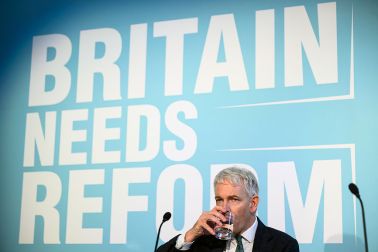Chancellor Kwasi Kwarteng has just announced a surprise 5p cut to the top rate of income tax and a 1p cut to the basic rate of tax. Together with stamp duty cuts and others, it will reduce tax by £45 billion by 2026-27 according to the Treasury’s analysis. The IFS says this is the biggest tax cutting event in half a century. Kwarteng confirmed that the National Insurance rise will be reversed, with the tax going down from November. Stamp duty will also be cut.
Kwarteng argues that this will put money back into the economy and kick start growth, but without an OBR forecast there is no formal assessment of the actual impact on growth. Rachel Reeves, the Shadow Chancellor, led her attack on his refusal to implement a windfall tax. She missed the bigger point: Kwarteng has just given the biggest tax cut to those earning over £150,000 – this will present an easy target for the Labour party once it works out what has just happened.
The Chancellor also set out a plan for growth, saying that the government will target 2.5 per cent growth. Kwarteng has argued that we need to break Britain’s ‘cycle of stagnation’.
Below are the main announcements from the mini-Budget so far:
- Income tax will be cut – with the highest rate (levied on all income above £150,000) reduced from 45 to 40p. The basic rate will go down from 20 to 19p in April next year.
- Stamp duty will be cut. No stamp duty will have to be paid on homes worth up to £250,000 and first time buyers will pay no stamp duty up to £425,000.
- Next year’s planned corporation tax rise will no longer take place. It had been set to rise from 19 to 25 per cent.
- The National Insurance rise will also be cancelled from November.
- Planned rises in alcohol duty will be cancelled.
- Overseas visitors will no longer pay VAT on shopping.
- The bankers bonus cap will be scrapped, with Kwarteng arguing that it will ensure that financial institutions continue to be based in London and pay tax here.
- A new Bill will unpick planning restrictions and EU derived laws that constrain major infrastructure projects.
- The Chancellor wants to introduce 38 ‘Investment Zones’ in different areas of England which will have time-limited tax cuts for businesses and liberalised planning rules.
- Benefits will be reduced if people do not fulfil their job search commitments.
- The first six months of the government’s energy package is expected to cost £60 billion from October.
- A list of infrastructure projects will be released that the government plans to accelerate.







Comments